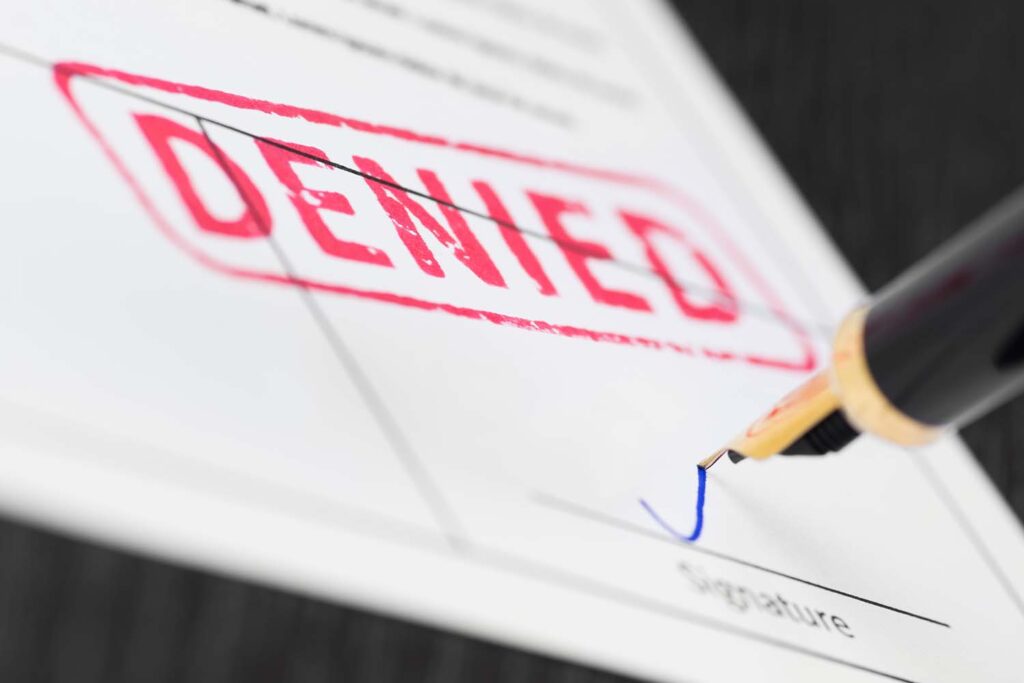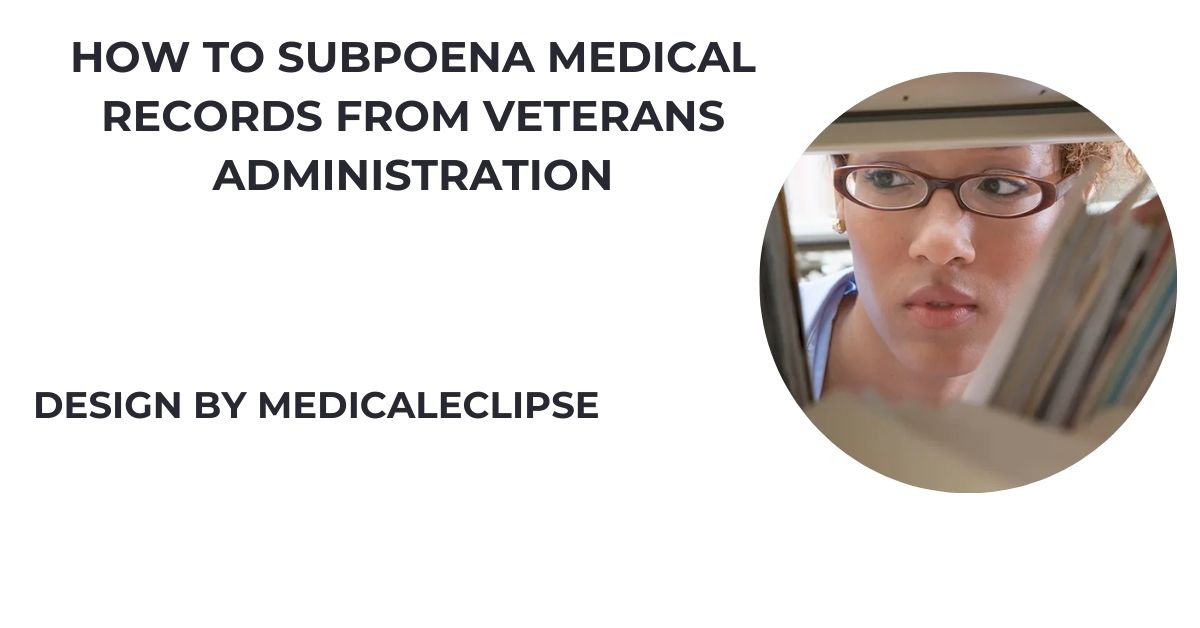To subpoena VA medical records, identify the right office, file a court-approved subpoena, serve it properly, and follow up while adhering to HIPAA regulations.
In this article, we’ll guide you through the process of how to subpoena medical records from the Veterans Administration, making it simple and straightforward.
What is a Subpoena?

A subpoena is a legal order that requires an individual or organization to produce certain documents or appear in court. In the context of medical records, a subpoena duces tecum is typically used. This type of subpoena commands the production of documents (in this case, medical records) in response to a legal request. The Veterans Administration, as a government entity, is subject to these legal processes, and subpoenaing its medical records can be done under specific circumstances.
Understanding the Importance of VA Medical Records:
VA medical records are crucial because they provide detailed information about the health history of veterans. These records can include information on diagnoses, treatments, surgeries, medications, and more. In legal cases, medical records may be necessary to support claims related to:
- Veterans Disability Claims: To substantiate a claim for VA benefits, it’s often necessary to prove the service-connected nature of an injury or illness.
- Family Law: In divorce or custody cases, medical records might be required to understand the health of a veteran or their ability to care for children.
- Personal Injury Lawsuits: If a veteran is involved in a personal injury claim, their medical history might be needed to establish prior conditions or treatments.
- Workers’ Compensation Claims: Veterans who are injured while on duty may need their medical history from the VA to support their claims.
Steps to Subpoena Medical Records from the VA:
Determine the Right Department:
The first step in subpoenaing medical records from the VA is identifying the right department or office that holds the records. The VA manages medical records through a few different channels:
- VA Medical Centers: If the veteran received care at a VA hospital or outpatient clinic, the facility where they were treated will have the records.
- Veterans Health Administration (VHA): This division of the VA manages healthcare records across various VA medical centers.
- VA Regional Offices: These offices deal with disability claims and other veteran services, but they may not be the primary custodians of medical records.
- Records Management Center (RMC): This office may store archived records, particularly for veterans who have been treated for long periods or in the past.
You will need to determine which specific VA office or medical center is in possession of the required records.
Also Read: Average Typing Speed Of Medical Scribe – Medical Scribe Typing Speed!
File the Subpoena with the Court:
A subpoena for VA medical records must typically be filed with the court as part of legal proceedings. The court will review the subpoena and issue it to compel the VA to produce the requested records. Subpoenas can be issued in various types of cases, including:
- Civil Litigation: If you’re involved in a lawsuit and need the records as evidence.
- Disability or Compensation Claims: When supporting evidence is necessary for VA claims.
- Workers’ Compensation Cases: If the veteran’s medical history is relevant to a workplace injury claim.
Once the court approves the subpoena, you’ll need to ensure it’s legally compliant with local, state, and federal rules regarding the release of medical records.
Drafting the Subpoena:
The subpoena should clearly specify the documents being requested. The VA deals with large amounts of records, so it’s important to narrow your request as much as possible to avoid delays. Include as much information about the veteran as possible, such as:
- Full Name of the Veteran
- Social Security Number or VA File Number
- Dates of Service
- Specific Treatment Dates or Medical Procedures
- Specific Conditions or Illnesses being referenced in the request
Be sure to include detailed language that precisely identifies the medical records you need. The more specific your request, the more likely you are to receive the appropriate documents quickly.
Serve the Subpoena:

Once the court has issued the subpoena, it must be served to the appropriate VA office. In most cases, this will involve sending the subpoena to the relevant VA medical center, regional office, or the Records Management Center. You may need to contact the VA directly to confirm the correct recipient, as this can vary based on the type of records requested and the location of the veteran’s treatment.
It’s crucial that the subpoena is served in accordance with the legal requirements, and you may need to pay any applicable fees associated with processing the request.
Follow Up on the Subpoena:
After serving the subpoena, it’s important to follow up regularly to track the status of your request. The VA is a large agency, and processing subpoenas for medical records can take time. Typically, the VA will respond to subpoenas within 30 to 60 days, but this can vary depending on the complexity of the request and the volume of records involved.
If there is a delay or issue with obtaining the records, you may need to follow up with the VA’s legal department or the specific office handling the records request.
Consider Privacy and Confidentiality:

Medical records, including those from the VA, are protected by stringent privacy laws. The Health Insurance Portability and Accountability Act (HIPAA) governs the privacy of health information and restricts the unauthorized disclosure of medical records. You will need to ensure that the subpoena complies with HIPAA requirements, which may include obtaining the veteran’s consent if the records contain sensitive information.
Additionally, if the veteran is deceased, the VA may require proof that you are the authorized representative or legal heir before releasing the records.
Common Challenges in Subpoenaing VA Medical Records:
While subpoenaing VA records is often necessary in legal cases, there are some common challenges that may arise during the process:
- Delays: The VA handles a vast number of records, which can cause processing delays. You may need to exercise patience and follow up consistently.
- Privacy Concerns: The VA is subject to strict privacy regulations, which may slow down the process or lead to the withholding of sensitive information.
- Incomplete Records: Sometimes, VA records may be incomplete, especially for veterans who received treatment at multiple facilities. If this happens, you may need to contact each facility individually.
Also Read: Where To Donate Used Medical Equipment Near Me – Donate Medical Equipment!
Tips for a Smooth Process:
- Work with a Legal Professional: If you’re unfamiliar with legal procedures, consider working with an attorney who specializes in VA claims or subpoena practices. An attorney can help ensure that your subpoena is filed correctly and that you comply with all legal requirements.
- Be Detailed and Precise: The more specific your request, the easier it will be for the VA to process it quickly.
- Prepare for Delays: Government agencies often have large backlogs, so be prepared for the possibility of delays. Follow up regularly to stay on top of your request.
FAQ’s
1. What is the purpose of a subpoena for VA medical records?
A subpoena is a legal order used to request specific medical records for legal or personal matters, such as disability claims or lawsuits.
2. Where can I request VA medical records?
You can request records from VA Medical Centers, the Veterans Health Administration, or the Records Management Center, depending on where the treatment occurred.
3. How long does the VA take to process a subpoena?
The VA typically responds within 30 to 60 days, though delays can occur due to volume or complexity.
4. What details are required in the subpoena?
You’ll need the veteran’s full name, Social Security number, service dates, and specific treatment or condition details.
5. Are VA medical records protected by privacy laws?
Yes, they are protected under HIPAA, and proper authorization or proof of legal authority is often required.
Conclusion
Subpoenaing medical records from the Veterans Administration is crucial for legal and personal matters involving veterans. By understanding the process, identifying the right department, and following legal protocols, you can efficiently obtain necessary records. If unsure, consulting a legal expert familiar with VA cases ensures compliance with rules and regulations for a smoother process.

Leave a Reply